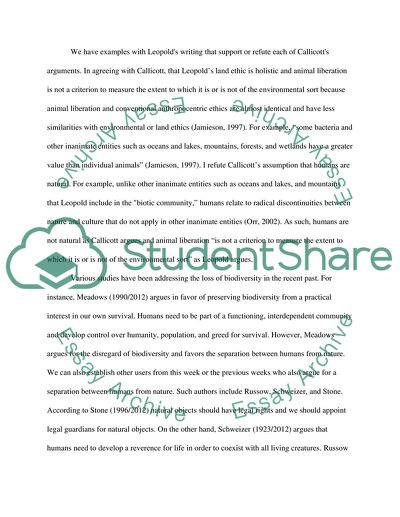Cite this document
(“Ecocentric Ethics: The Land Ethics by Leopold Essay”, n.d.)
Retrieved de https://studentshare.org/environmental-studies/1650827-environmental-ethics-assignment-4
Retrieved de https://studentshare.org/environmental-studies/1650827-environmental-ethics-assignment-4
(Ecocentric Ethics: The Land Ethics by Leopold Essay)
https://studentshare.org/environmental-studies/1650827-environmental-ethics-assignment-4.
https://studentshare.org/environmental-studies/1650827-environmental-ethics-assignment-4.
“Ecocentric Ethics: The Land Ethics by Leopold Essay”, n.d. https://studentshare.org/environmental-studies/1650827-environmental-ethics-assignment-4.


